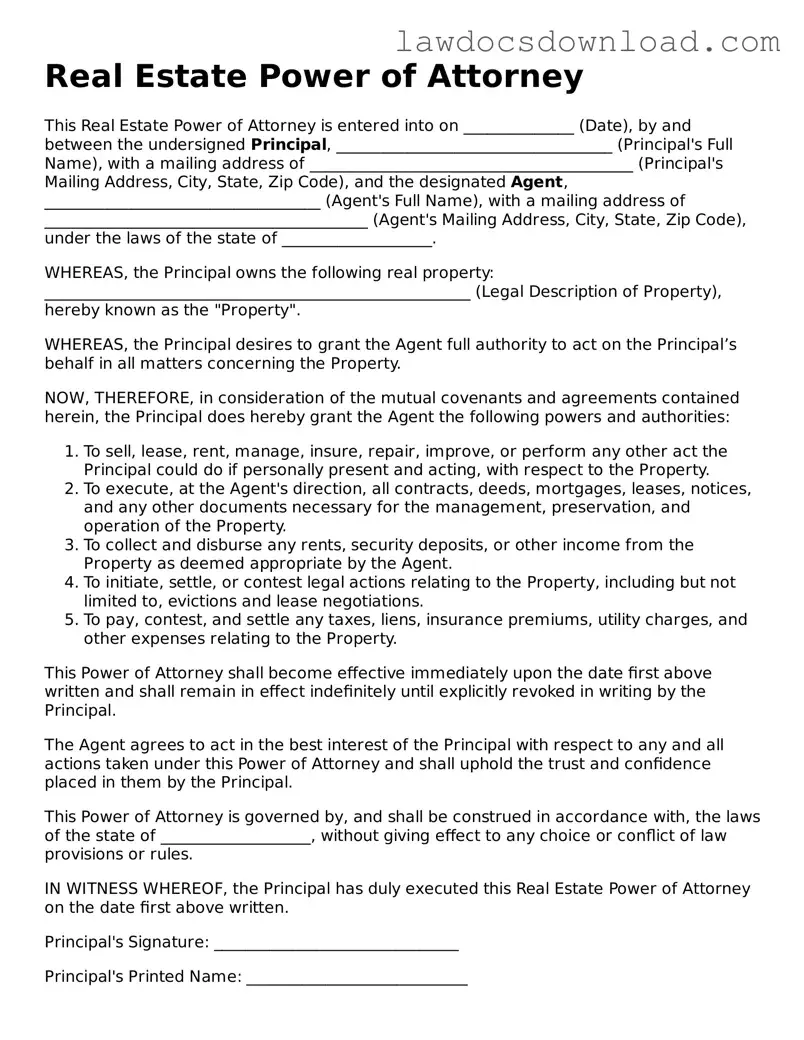Real Estate Power of Attorney
This Real Estate Power of Attorney is entered into on ______________ (Date), by and between the undersigned Principal, ___________________________________ (Principal's Full Name), with a mailing address of _________________________________________ (Principal's Mailing Address, City, State, Zip Code), and the designated Agent, ___________________________________ (Agent's Full Name), with a mailing address of _________________________________________ (Agent's Mailing Address, City, State, Zip Code), under the laws of the state of ___________________.
WHEREAS, the Principal owns the following real property: ______________________________________________________ (Legal Description of Property), hereby known as the "Property".
WHEREAS, the Principal desires to grant the Agent full authority to act on the Principal’s behalf in all matters concerning the Property.
NOW, THEREFORE, in consideration of the mutual covenants and agreements contained herein, the Principal does hereby grant the Agent the following powers and authorities:
- To sell, lease, rent, manage, insure, repair, improve, or perform any other act the Principal could do if personally present and acting, with respect to the Property.
- To execute, at the Agent's direction, all contracts, deeds, mortgages, leases, notices, and any other documents necessary for the management, preservation, and operation of the Property.
- To collect and disburse any rents, security deposits, or other income from the Property as deemed appropriate by the Agent.
- To initiate, settle, or contest legal actions relating to the Property, including but not limited to, evictions and lease negotiations.
- To pay, contest, and settle any taxes, liens, insurance premiums, utility charges, and other expenses relating to the Property.
This Power of Attorney shall become effective immediately upon the date first above written and shall remain in effect indefinitely until explicitly revoked in writing by the Principal.
The Agent agrees to act in the best interest of the Principal with respect to any and all actions taken under this Power of Attorney and shall uphold the trust and confidence placed in them by the Principal.
This Power of Attorney is governed by, and shall be construed in accordance with, the laws of the state of ___________________, without giving effect to any choice or conflict of law provisions or rules.
IN WITNESS WHEREOF, the Principal has duly executed this Real Estate Power of Attorney on the date first above written.
Principal's Signature: _______________________________
Principal's Printed Name: ____________________________
Date: ________________
Agent's Signature: _________________________________
Agent's Printed Name: ______________________________
Date: ________________
State of ___________________
County of __________________
Subscribed and Sworn to before me on ______________ (Notary Date).
Notary Public's Signature: ___________________________
(Seal):
Commission expires: ______________

